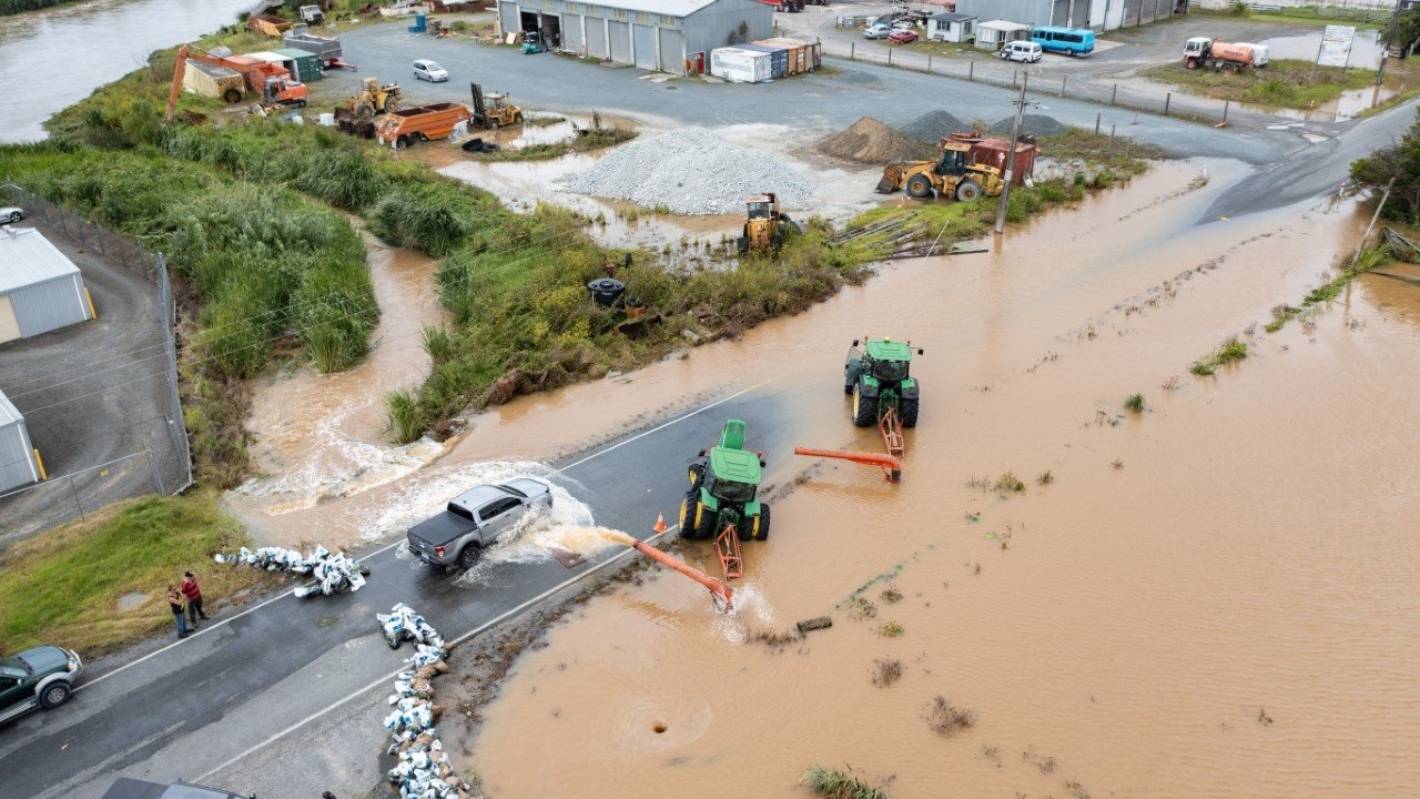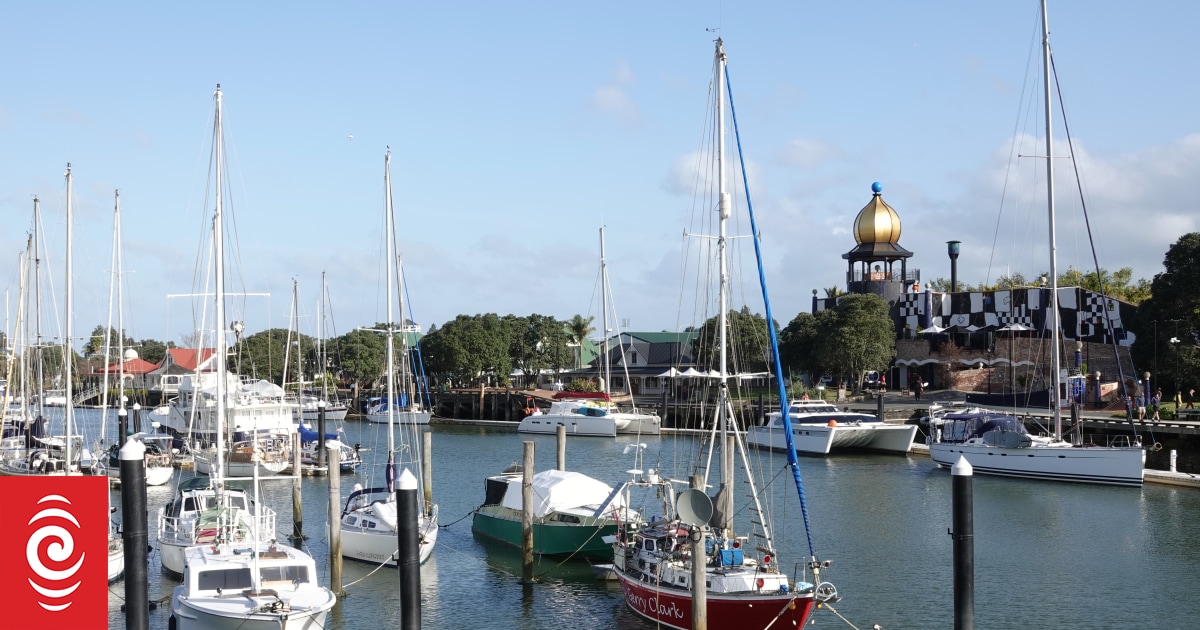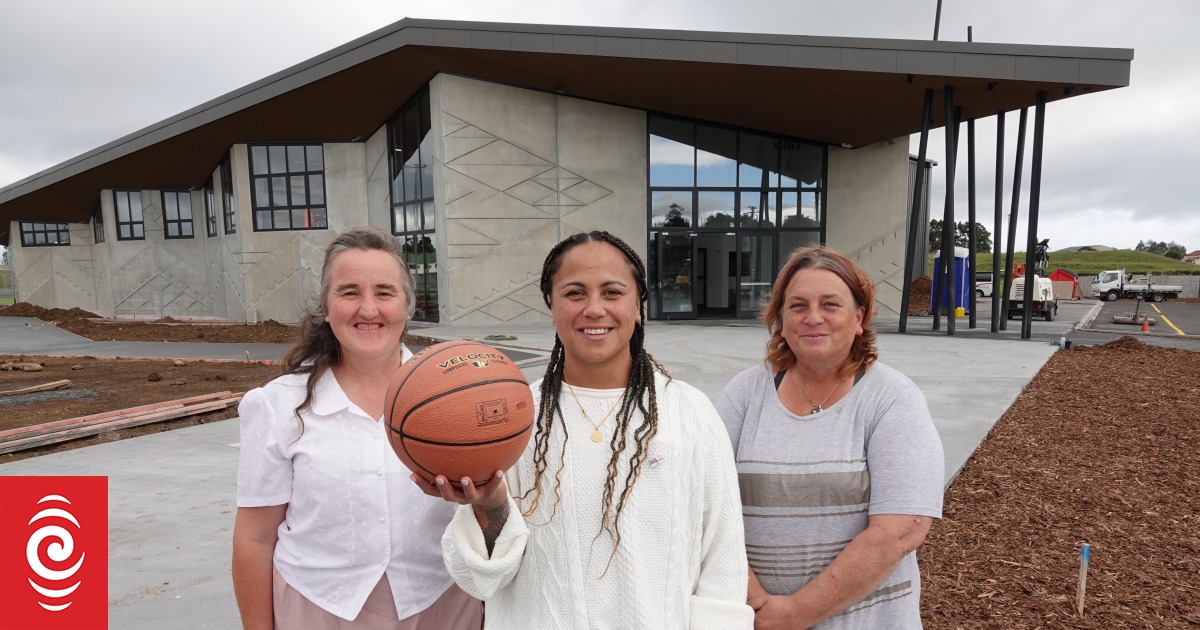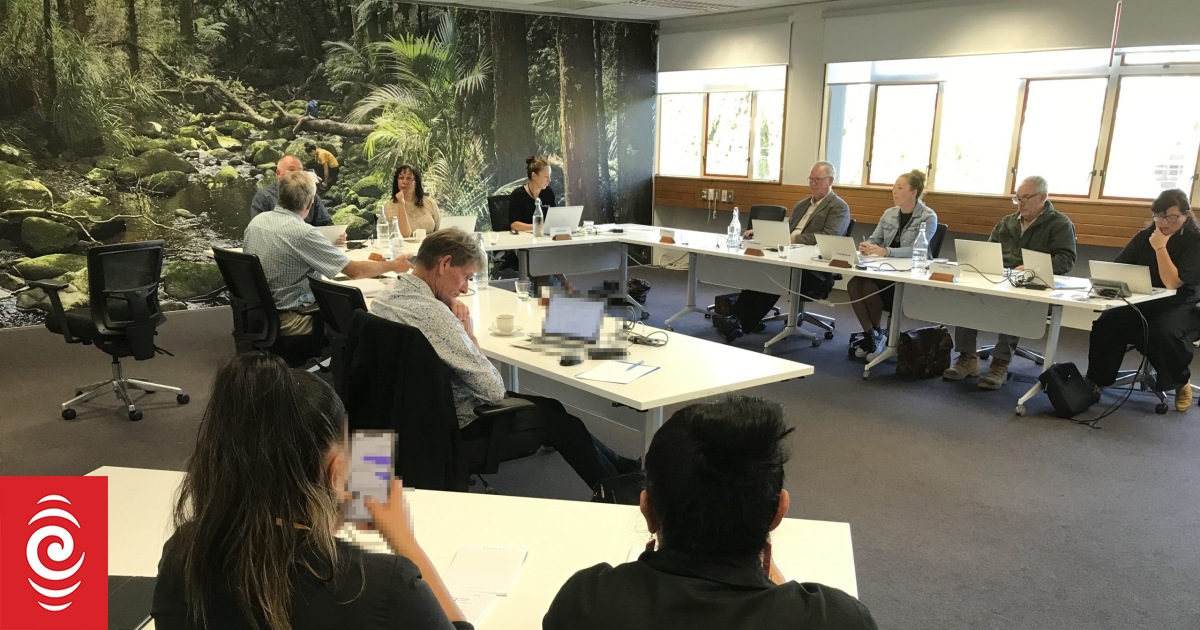Kaipara District Council/Supplied
Tinopai Road Damage on the road to Kaipara Harbour’s remote harbourside community of Tinopai, which was initially cut off the outside world by the cyclone’s damage.
Northland’s worst-hit Cyclone Gabrielle district is deferring more than $10 million of planned work rather than almost doubling its rates to pay for major damage.
Kaipara District Council (KDC) ratepayers would otherwise be facing a 10.14% rate increase, almost double the 5.38% draft rates lift they are currently looking at for the 2023/2024 financial year starting on July 1.
The deferments come as KDC considers the vexed question of how to pay for more than $26 million of damage across the district.
Kaipara suffered Northland’s worst damage when Cyclone Gabrielle hit the district on Valentine’s Day.
READ MORE:
* Māori should be front and centre of climate change and weather disaster responses
* Family ‘feared for our life’ as tornado took chunks of roof, flattened fences
* Bremworth moves some production overseas to ensure supply after its Napier factory was hit by Cyclone Gabrielle
This was followed by the February 24 Mangawhai rains, which brought further damage hot on the heels of the cyclone.
All that in turn came after extremely wet conditions in Kaipara across November, December and January in the months leading up to the cyclone.
KDC’s general manager infrastructure services Anin Nama said in a severe weather updated to a council briefing meeting in Mangawhai on Wednesday early estimates showed Gabrielle had brought a $26.39 million hit for the district.
This was made up of $20.9 million in transport and roading impacts, $2.55 million damage to stormwater, $1.53 million damage to the council’s wastewater treatment plants, $1.21 million damage to the district’s land drainage systems and $200,000 damage to drinking water supplies.
The council is looking at deferring $5.1 million of work on bridges and to a lesser extent road sealing is to be deferred, along with $5.4 million of work across a variety of plan plus.
Nama said the $5.4 million of potential general projects deferment included work on: aspects of Dargaville’s wastewater treatment plant, council vehicle replacements, the council’s Waiatua drinking water reservoir north of Dargaville, public consultation about the council’s waste strategy, the council’s Kaihu River Rotu water intake and Wood Street Mangawhai stormwater system and beautification.
KDC will be writing to Waka Kotahi and the Minister of Transport seeking an extension to the June 30 deadline for up to 100% Cyclone Gabrielle government funding available towards the bridge work and to a lesser extent road sealing.
Should this be achieved, this part of the deferred work of this type would be back on the radar.
The council is also to seek a lift from its current business-as-usual 62% Waka Kotahi subsidies for local roading.
Cr Mark Vincent said one cyclone repair funding option could be to increase council debt.
Waka Kotahi
Waka Kotahi drone video shows the havoc Cyclone Gabrielle inflicted on SH1 at Brynderwyn Hills, south of Whangārei. (This video has no sound. First published February 28.)
KDC general manager sustainable growth and investment Sue Davidson said the council would be getting close to its agreed $60 million debt ceiling in the next 18 months.
The council’s Kaipara recovery manager Glynis McCarthy – one of three newly appointed district council recovery managers in the North reporting to a regional recovery manager – said the scale of the damage facing the district was overwhelming for many.
McCarthy said there had been 150 applications totalling more than $2 million to the council’s Mayoral Relief Fund.
This was four times its available $485,468.94. (Applications closed on Monday.)
The fund is made up of $5000 from Waikato’s Pirongia Golf Club, $250,000 from the government’s disaster relief fund, about $209,600 from Stuff, $10,800 from Toyota Finance and $5000 from Mitre 10.
Northern Advocate/Supplied
Cyclone Gabrielle brought widespread flooding to Kaipara including here at Kaihu Valley.
McCarthy said fund applications had come from around the district. Staff had been working with applicants in the face of its oversubscription to help direct them to other available funding options.
Oversubscription meant applicants would probably get only part of what they had applied for.
She said the council’s executive would make final decisions on paying out on those applications before the end of the month.
“We want to get the money out to people as soon as possible,” McCarthy said.
Cyclone Gabrielle damage is expected to take years to repair to the point where the lives of those affected are returned as closely as possible to normal.
Susan Botting/Local Democracy Reporting
Kaipara recovery manager Glynis McCarthy updates KDC councillors about the district’s cyclone recovery in Mangawhai on Wednesday.
McCarthy said Kaipara’s Cyclone Gabrielle’s immediate response work has finished.
Immediate response work had included emergency stopbank repairs, making sure wastewater, stormwater and drinking water suppliers were working adequately and restoring transport links so supplies and essential services could reach affected communities.
The council had now moved into the recovery phase of dealing with the cyclone’s impact.
This focused on fixing identified damage. She said recovery work had a much longer tail than the short-term immediate nature of response.
Council recovery work would continue until 2025. After that, the work involved in getting back to normal after the cyclone would shift into business-as-usual mahi.
Longer term response included enhancing council infrastructure to better withstand future weather events then returning to business as usual.




